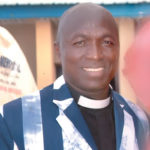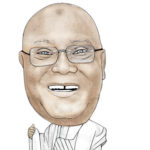Secondus’ lines, fast turning a refrain, is indicative of the party’s lack of confidence in the electoral body and the police. He told the NEC: “We, therefore, call on the INEC leadership headed by Professor Yakubu to quietly resign, because he does not have strong will and courage to conduct a free and fair election.
“We also call on the IGP to resign and go, because I have never witnessed in the history of our nation, from the First Republic even in the military regime, we have never seen this kind of act and the way and manner the police have been used by the government of APC against the ordinary citizens.
“Our people are being killed on a daily basis and as I speak with you, leaders of PDP have been earmarked to be murdered and killed. The country will rise to defend the values of our founding fathers, and of our democracy.”
It is instructive that the PDP had repeated such lines before delegations from the United Nations, the United States of America, United Kingdom and the national peace committee and also after elections in Edo, Ondo, Ekiti, Osun, Kwara and Bauchi.
It is easy to conclude that the opposition would always cry foul. Some observers would also tell you accusations are endless in politics. When a politician is losing, the electoral body is at fault, when he wins, the electoral body is a saint. I recall many of us equally exhibited such traits in our schooling days. When you score good grades you will say ‘I scored A in that course.’ But when the marks are low, you will say ‘they gave me a pass in that course.’
A story was once told of a governor, who, in the morning of an Election Day, had threatened to reject the result due to alleged widespread logistic issues, only for him to hail the election as the best ever after he was declared the winner. It could be that such is the way of life. But out there is a certain fundamental, which points to the reality of it all. The truth and the undeniable reality. Truth is constant, it has been said, and truth is open to all; it dwarfs sentiments and biases. Generally, there must be an agreement as to the position of truth as far as the issues around our elections are concerned.
Because elections are fired by passions and emotions, the chairman of INEC must readily receive kicks and jabs from opposing political tendencies. It would be in a good stead if both parties are suspicious of its activities. It would be bad if only one party is heaping praises. That would suggest the body is in bed with one party. In the build-up to the 2015 election, the All Progressives Congress (APC), which today is the ruling party, was on the opposing side. It shouted itself hoarse accusing INEC of being an ally of the PDP. But as soon as its candidate emerged victorious, the noise died down.
But the call on INEC to conduct free, fair and credible elections should not be restricted to the idiosyncrasies of the politicians and the political colorations. It should be a course that earns universal acclaim as it concerns every stakeholder. It is a course that should stand the test of truth in all climes; the same for the role of the police and the security, especially, in view of the growing importance of security in our elections in recent times. So, if the PDP is hollering at INEC and the police bosses, key stakeholders should not just consign the ‘noise’ to annals of political sloganeering. There could be quality Intel to derive from the sound bites.
Reports from recent elections have been full of mixed bags. Where INEC did well, the police didn’t. There was good conduct in Anambra, very bad signals from Edo, fair reports from Ondo and bad police conduct in Ekiti. It was also a very bad report about the police during the rerun election in seven polling units in the Osun governorship election recently; same as the by election in Kwara state.
In Osun 2, as they call it, security men were said to have gone early into some communities and fired several gunshots to deter voters from coming close to the polling units. That was a crude way of gerrymandering that INEC must deal with. If security agents find any crude or ingenious way of influencing elections either by switching off lights at collation centres, blocking access of some voters to the polling units or any other means, INEC chairman should waste no time in cancelling the election and ordering a repeat.
It is not enough for INEC to deploy materials and throw its hands to the air. INEC chairman must insist that security operatives and logistics personnel (like NURTW or RTEAN) must behave in acceptable conducts; otherwise the election is voided and repeated. The chairman of INEC needs to know that security officials can choose to misbehave during elections; it is his duty to insist they do the right thing. Where reports of independent observers show deliberate gerrymandering aided by the security operatives or INEC officials, the result should not be acceptable to INEC.
Professor Yakubu must realise that the duty of conducting credible election rests with so many forces, largely around his commission and the Police but the glory or the blame of it all would rest squarely on his head.






